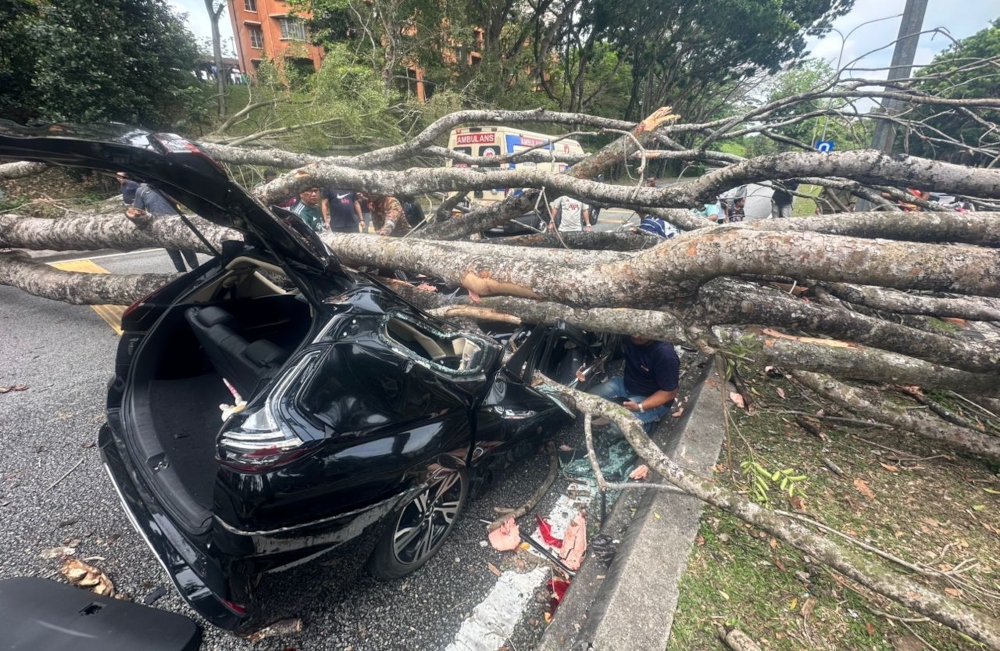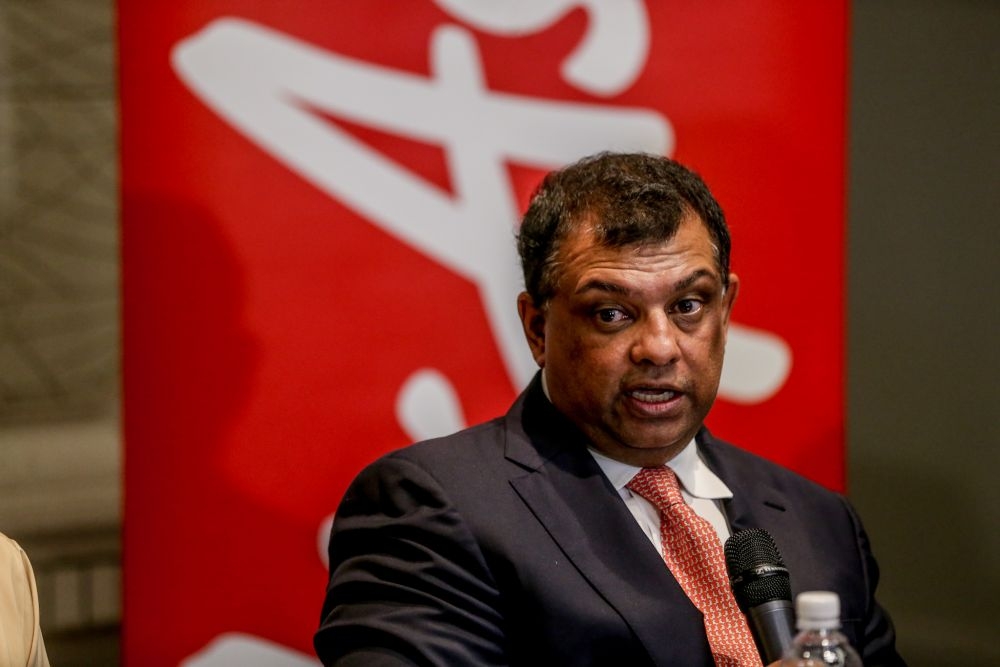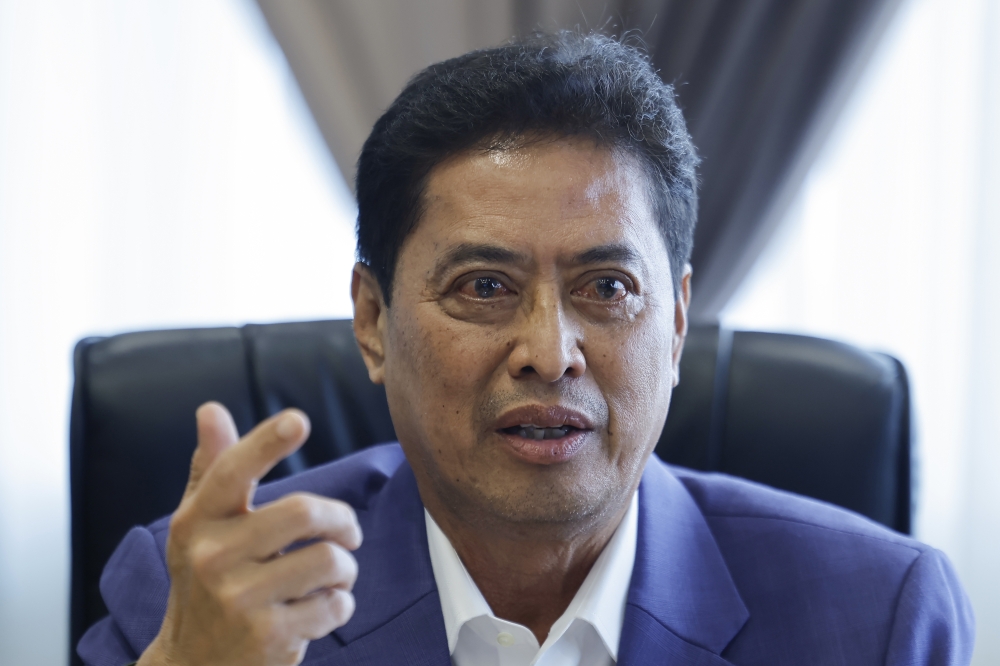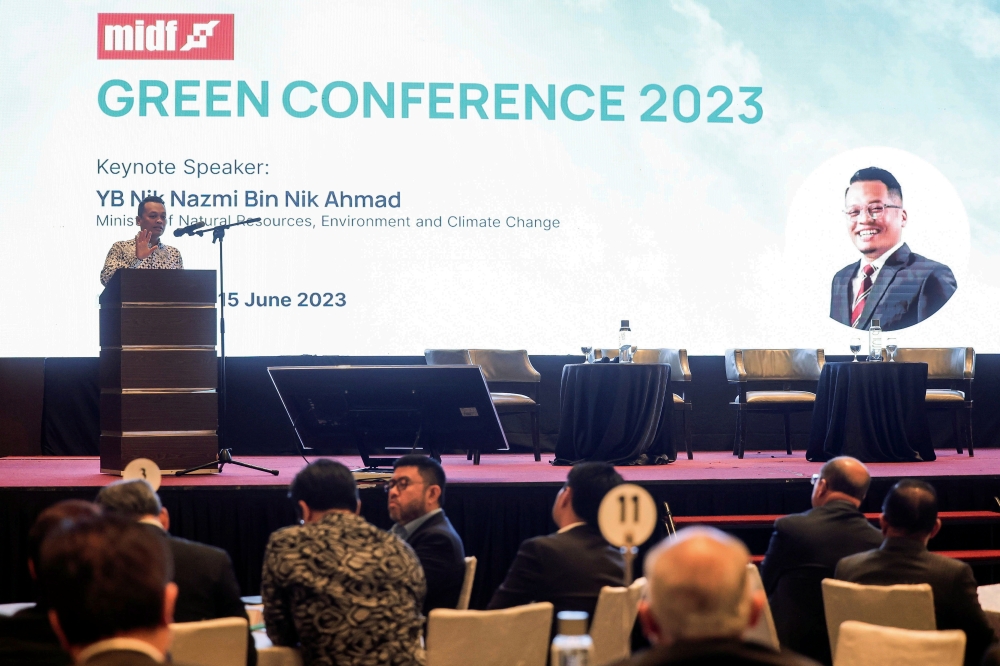KUALA LUMPUR, June 15 — Environmental, social and governance (ESG) issues are increasing in importance for business, trade and investment, and countries that can successfully make the energy transition and master ESG and green tech will get ahead while those that do not will be left behind.
Natural Resources, Environment And Climate Change Minister Nik Nazmi Nik Ahmad said according to the Malaysia Transition Energy Outlook report prepared by the International Renewable Energy Agency (Irena), Malaysia would require an investment of RM637 billion up to 2050 to increase the renewable energy (RE) capacity.
“To get to our target of net zero (emissions) by 2050, we need such an investment to instal the new system, to upgrade the grid and to install more solar panels in the future. More hydrogen plants and more mini-hydro plants as well as battery storage (infrastructure) are needed to make us more ready for RE so that we could move forward.
“Currently our capacity for RE, if we include large hydro (plants), is 25 per cent. We still rely heavily on fossil fuels like coal and natural gas.
“We are trying and have already declared ‘no new coal’ (coal power plants) in Malaysia and will use new sources of energy. In the meantime, we are viewing liquefied natural gas as a form of bridging as we move forward toward net zero,” he told reporters on the sidelines of the MIDF Green Conference 2023 here today.
He said the Ministry of Natural Resources, Environment And Climate Change (NRECC) is also working on a Climate Change Act, which will establish a legal framework on climate change mitigation and compliance mechanisms.
“We are likewise developing an Energy Efficiency and Conservation Act, with the aim of regulating energy efficiency and conservation practices. I am fully committed to finalising the bills and implementing them to optimise resource utilisation and minimise the environmental impact of our economic development,” he said.
Sustainability, he stressed, requires a collective effort of the whole government, Corporate Malaysia, and all responsible parties who want to leave a better world for future generations.
He said consumers are increasingly concerned about sustainability and, at any rate, there will be no way for anyone to make money if the environment is destroyed.
The finance industry, which is so crucial to the economy as a whole, should take the lead in embracing sustainability, whether via its operations, the products it offers and or the kind of business projects it funds, Nik Nazmi said.
“We must green the finance and finance the green. I think the support is there but it can always be better. But to be fair, Bank Negara Malaysia as well as the Securities Commission Malaysia are doing a lot of work trying to put more focus on sustainability.
“At the same time, the challenge is still about trying to understand the whole scene. However, I think now there is a lot more focus there and everyone is learning about the new reality which is gearing more towards faster energy transition,” he said.
Meanwhile, MIDF group managing director Datuk Charon Wardini Mokhzani in his welcome speech said the MIDF Green Conference started in 2019, when few local banks were talking about green finance, sustainability, ESG or the carbon economy.
“It is a hugely important issue for the country on how do we balance the international pressures on us to de-carbonise and be more environmentally aware with our own national priorities and the reality that as a small nation, our contribution to the carbon dioxide and other so-called greenhouse gases in the atmosphere is negligible compared to the bigger or richer nations.
“Should we give all this up? Or, since we can’t without ruining our standard of living and giving up the economic development that was so hard earned, what do we need to do to square the circle? These are the hard questions we face, and we need clear government policy and legislation. The Climate Change Act mentioned by the minister is a very welcome development in this regard,” he said.
He also highlighted that internationally, the Europeans have strict laws and regulations on carbon emissions and the environment, whereas this is not the case in many of the US states, where coal mines and coal-powered power plants are quite welcome.
“Our policies on climate and de-carbonisation are currently made by many different regulators and government agencies, and not just by the NRECC.
“The financial regulators, for example, have come up with policies on ESG and carbon that financial institutions and listed companies need to abide by, like the Europeans. At today’s conference, we will unpack these and other issues and try to answer some of the hard questions,” he added. — Bernama



















